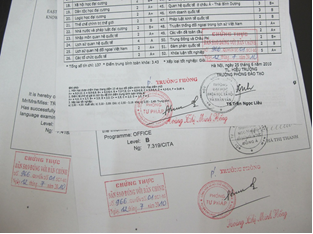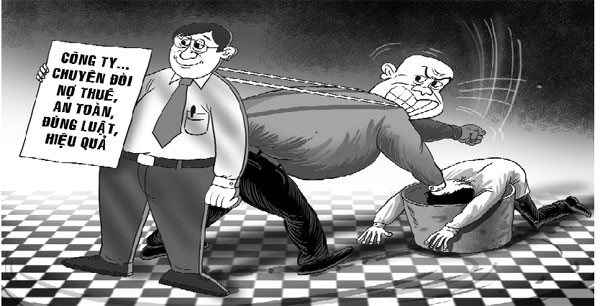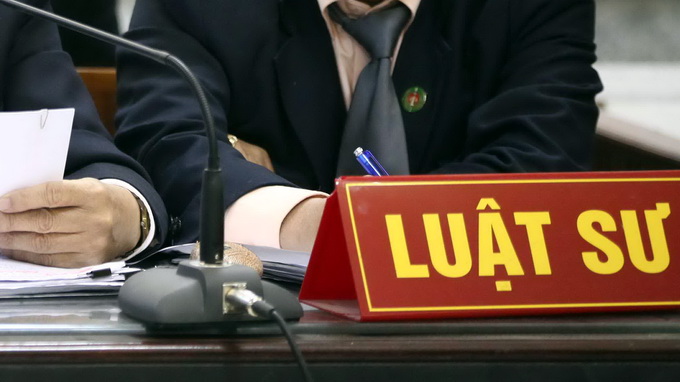In practice, the terms "notarization" and "authentication" are often used together by many Vietnamese people, with even a significant number confusing them as one. However, these are two completely different concepts.

Hanoi-Vietnam: What are the differences between notarization and authentication? (Illustrative photo)
The differences between notarization and authentication are clearly demonstrated through the following contents:
1. Definition of notarization and authentication
| Notarization | Authentication |
|
Notarization means the written authentication by a notary of a notarial practice organization of the authenticity and lawfulness of a contract or another civil transaction (below referred to as contract or transaction) or of the accuracy, lawfulness, and conformity with social ethics of the Vietnamese or foreign-language translation of a paper or document (below referred to as translation) which is prescribed by law or voluntarily requested by an individual or organization to be notarized |
Authentication means competent agencies as stipulated in Decree 23/2015/ND-CP shall certify copies of the originals as true based on the originals |
| (according to Clause 1, Article 2 of the Notarization Law 2014) | (according to Clause 2, Article 2 of Decree 23/2015/ND-CP) |
2. Nature of notarization and authentication
| Notarization | Authentication |
|
Aim to ensure the content of a contract or transaction; The notary is responsible for the legality of the contract or transaction, and by ensuring its legality, minimizes risk |
Confirm the accuracy, and legality of documents, signatures of individuals, and personal information to protect the rights and interests of individuals and organizations involved in civil, economic, and administrative relations. |
3. Documents to be notarized and authenticated
| Notarization | Authentication |
|
Documents to be notarized include: - Civil contracts; - Civil transactions; - Translations. |
Documents to be authenticated include: - Issuance of copies from master registers; - Authentication of copies from the original; - Authentication of signatures; - Authentication of contracts, and transactions. |
4. Authority to notarize and authenticate
| Notarization | Authentication |
|
Individuals performing notarization are: - Notaries from notary bureaus; - Notaries from Notary Offices. Notary Offices and Notary Bureaus are organized and operate according to legal regulations. |
Individuals performing authentication are: - The Head or Deputy Head of the Justice Division in districts, towns, and provincial-level cities; - The Chairman, Vice Chairman of the People's Committee of communes, wards, and towns; - Notaries from Notary Offices and Notary Bureaus; - Diplomatic officers, consular public employees of Vietnamese diplomatic missions, consular missions; and - Other authorized agencies to perform consular functions of Vietnam abroad. |
5. Legal value of notarization and authentication
| Notarization | Authentication |
|
- Notarized documents are effective from the date they are signed and sealed by notarizing organizations. - Notarized contracts and transactions are enforceable by the parties concerned; if an obligated party does not perform their duty, the other party has the right to request the Court to resolve according to legal regulations unless otherwise agreed by the contract parties. - Notarized contracts and transactions have evidential value; the facts and events in notarized contracts and transactions do not require proof unless declared invalid by the Court. - Notarized translations are as valuable as the original documents. |
- Copies issued from master registers are valid for use in transactions, except where otherwise provided by law. - Authenticated copies are valid for use in place of the original in transactions, except where otherwise provided by law. - Authenticated signatures serve as evidence that the signing person has signed it, forming a basis for determining the signer's responsibility for the document's content. - Authenticated contracts and transactions serve as evidence of the time, location of the signing, the civil act capacity, voluntary intent, signatures, or fingerprints of the contract participants. |
6. Regulatory documents
| Notarization | Authentication |
| Notarization Law 2014. |
Decree 23/2015/ND-CP; |
Above are the basic contents on the difference between notarization and authentication in Vietnam. Although these two terms are often used together, they are not synonymous because each activity is specified by different legal documents. This confusion can lead to identifying the wrong documents to be notarized and authenticated, resulting in the wrong choice of the competent authority or organization.
Thuy Tram
- Key word:
- notarization and authentication
- Vietnam
 Article table of contents
Article table of contents










.Medium.png)
.Medium.png)
.Medium.png)
.Medium.png)
